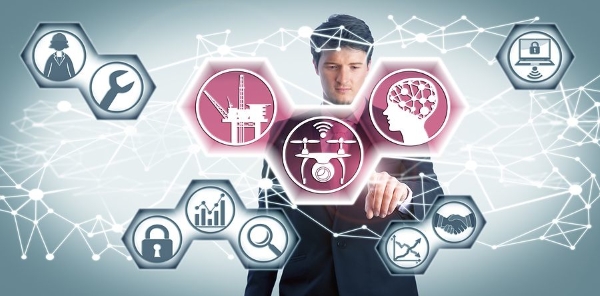No matter your specific job, technology has a huge impact on your day-to-day. While you may not be in a technical role, your ability to understand how technology can help (or impede) your work is a critical skill in the increasingly digital environment of government work. With this in mind, a 2023 career goal may be to better familiarize yourself with some key technologies that are currently in the early stages of use in government — artificial intelligence and zero trust.
Getting Real About Artificial Intelligence
Artificial intelligence, or AI, is the practice of computers, aided by algorithms, performing tasks that normally require human intelligence or intervention. AI systems mimic the problem-solving and decision-making capabilities of the human mind, doing so at machine speed. This enables agencies to make better use of the troves of data they hold for daily decision-making, strategic planning, and citizen service. The use of AI frees up humans to work on more meaningful tasks rather than (say) spending time telling citizens the mailing address of the agency.
Of course, the application of AI is not without drawbacks. In the fall of 2022, the White House released the AI Bill of Rights, designed to address concerns about how, without some oversight, AI could lead to discrimination against minority groups and further systemic inequality. The National Institute of Standards and Technology (NIST) will issue an AI Risk Management Framework (AI RMF) in early 2023 to follow on this high-level guidance with actionable steps agencies can take.
AI’s benefits in reducing menial work have helped dispel the fear that “machines will replace people.” However, those who refuse to adopt and adapt to AI-enabled tools may in fact find themselves replaced by other people who do. All employees can benefit from a better understanding of where AI is being used in government today and thinking about how that could extend to their work. Doing so with an understanding of the fair-use policies being crafted for AI can make someone a critical resource no matter their job title.
Increasing Understanding of Zero Trust
Zero trust is a security approach centered on the belief that organizations should not automatically trust anything accessing their systems either inside or outside their perimeters. Instead, all people and devices must be verified before access is granted. The Executive Order on Improving the Nation’s Cybersecurity (Cyber EO) has a strong emphasis on moving government toward a zero-trust approach. It laid out deadlines for agencies to submit plans for implementing zero-trust architectures, holding organizations accountable for changing how they allow users to access their systems.
Every agency is rethinking how it grants system access and reworking processes and policies to fall in line with zero-trust tenants. The Department of Homeland Security (DHS) Cybersecurity and Infrastructure Security Agency (CISA) developed a Zero Trust Maturity Model that defined the core pillars of zero trust and the technologies/systems needed to meet zero-trust guidance — identity, device, network/environment, application workload, and data.
Becoming familiar with zero trust’s basic principles will benefit all employees, as it will help make sense of changes related to system access. With this understanding, the less technical government workforce can partner with the IT and security teams implementing these reforms, helping to accelerate the improved security of government systems.
Becoming Part of the Government Workforce of the Future, Today
Getting up to speed on these two key technologies does not require going back to school for a degree in computer science. Instead, it only takes a curiosity to get in on the ground floor of understanding how AI and zero trust will impact government work moving forward. Some ways to do this:
- Look for webinars. Learn about AI and zero trust from the comfort of your desk or even your couch. There are a host of webinars on this topic that feature government executives talking about implementations in non-technical terms — focusing on the business and mission impacts these technologies have. Even if you cannot make the webinar live, sign up. Many webinars send a recording after the event to all registrants.
- Get back out to events. After two+ years of limited in-person events, live events have made a strong comeback. Look for events about AI and zero trust local to your home or office, and use the need for education as a motivator to get back out and network in person.
- Do some reading. There are countless articles and white papers that break down the complexity of AI and zero trust into layman’s terms. Set a Google alert on these topics or bookmark/set an RSS feed for blogs that frequently highlight government application of these and other leading-edge technologies.
In dedicating time to learn about key emerging technologies, you can not only improve your career growth options, but you can also help advance their use for the betterment of government missions.
As the founder of GovEvents and GovWhitePapers, Kerry is on a mission to help businesses interact with, evolve, and serve the government. With 25+ years of experience in the information technology and government industries, Kerry drives the overall strategy and oversees operations for both companies. She has also served in executive marketing roles at a number of government IT providers.





Leave a Reply
You must be logged in to post a comment.